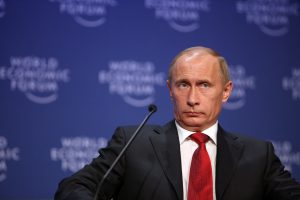With his back against the wall, he has regained his memory. Confronted with China, which forced him to back down on tariffs by threatening to ban exports of rare earth elements to the United States, Donald Trump suddenly remembered that he had allies who were once referred to as “Western.”
Following a G7 meeting, his energy secretary agreed with his Japanese, Canadian, French, German, British, and Italian counterparts to create an Alliance for Critical Minerals Production in Toronto last Friday. Although his name is not mentioned, the aim is to break the virtual monopoly that China has secured by extracting 60% of these minerals and, above all, refining 90% of global production.
The investments required are considerable. It will take years for the G7 countries to make up for lost time, but the key point is that the power relationship established by Xi Jinping has opened the eyes of the man who, on February 27, was still saying: “The European Union was formed in order to screw the United States.” Not only did Donald Trump forget that European unity had the dual objective, encouraged by Washington, of ending centuries of war and organizing a common front against the USSR, but he had done everything since then to harm the Union and try to get closer to the Kremlin.
It wasn’t just the imposition of tariffs on European products. There was also the humiliation of Volodymyr Zelensky in the Oval Office, Vice President Vance’s speech in Munich accusing Europe of all evils, the stated desire to annex Greenland, the peace settlement proposed to Putin over the heads of the Ukrainians, and the militant and constant political support for the European far right, particularly the Alternative für Deutschland.
The list is not exhaustive, and the question is whether Toronto marks a turning point or is merely the exception that proves the rule.
On the one hand, Donald Trump has every reason to prefer 27 Europes rather than one. With its 450 million inhabitants, purchasing power, wealth, and universities, the EU is effectively the United States’ most serious economic competitor. If it manages to maintain its support for Ukraine and give substance to its common defense project, it will also become a strategic competitor, and that’s not all. With its level of social protection and fiscal redistribution, it is also a socio-political model that this president and his friends want to destroy because, in their eyes, it is an example that the world should not follow.
On the other hand, Donald Trump has just discovered that Vladimir Putin could reject the hand he extended to him and, worse still, that Xi Jinping could relativize American omnipotence in the eyes of the world. As the months go by, Donald Trump will have to understand that the United States is facing a China that intends, with Russia’s support, to take historic revenge on the Euro-American West. In other words, this is no small battle, and with a domestic front that he continues to divide, Donald Trump may soon find himself very alone, for who will want to stand by his side in this inevitably costly and difficult battle?
After he has so brutally mistreated Canada, Mexico, and Brazil, caused so much concern in Asia, and so deeply betrayed the Europeans by seeking to make deals with the Kremlin behind their backs, Donald Trump will have many people to appease in order to find the support he needs. He will have to make people forget that, in his words, Mexicans were the absolute evil and Canada was destined for annexation. Above all, he will have to share the burden of aid to Ukraine with the Europeans and accept that the increase in their military spending will not benefit American companies but European ones.
Photo : Rawpixel



